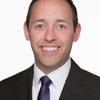
Patrick Vining
Resident, Cardiothoracic Surgery — Harrison College of Business and Computing
Explain your career path
Attended New York University School of Medicine, where I became interested in cardiothoracic surgery. Began research during my time as a preclinical student. I matched into the integrated cardiothoracic surgery program at IU where I am a resident.
What was your major at Southeast and how would you characterize the quality of that program to prospective students?
Political science and economics due to my interest in supplementing my pre-medical coursework and desire to learn more about government, finance, and politics.
Why did you choose to attend Southeast?
Southeast provided a very competitive scholarship package and showed itself to be a friendly, accessible, and active campus. I could see myself excelling in my time there.
Who influenced you most during your time at Southeast?
Michele Irby was a phenomenal mentor and advisor through Student Government. Dr. Jeremy Walling of political science was a fantastic educator and mentor. Dr. Willie Redmond of economics was also an outstanding educator and leader in extracurricular activities.
Share your best college memory.
My time on Student Government and in Lambda Chi Alpha were the best periods of my college career. I enjoyed working with other students, faculty, and staff to achieve common goals. And homecoming is, of course, an unforgettable tradition.
If you were in Greek Life, the Honors Program or any other student organization, please tell us about that experience and how it impacted you.
Obtaining my medical degree
What is the most important thing you learned while you were at Southeast?
Anyone can excel if given opportunity to thrive
Describe Southeast in three words.
Community, vibrant, local
What advice would you give current students or recent graduates interested in pursuing a career in your professional field?
Medicine is an outstanding field, but it is a nebulous, large, hard-to-navigate one. Make sure you obtain all the information you can about medical schools/residency programs, and don’t just rely on what others tell you. It is important to pursue the things you care about, and success in extracurriculars and non-science courses are just as relevant as science knowledge.